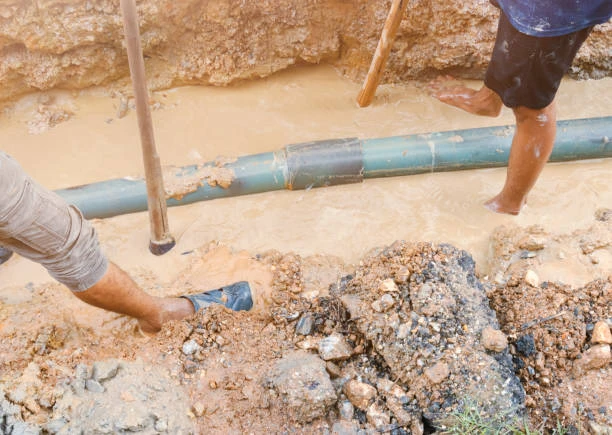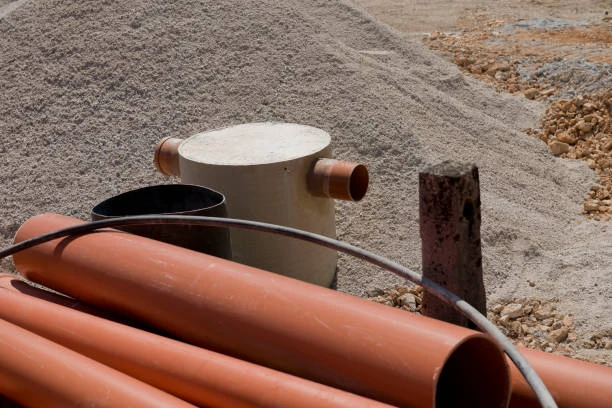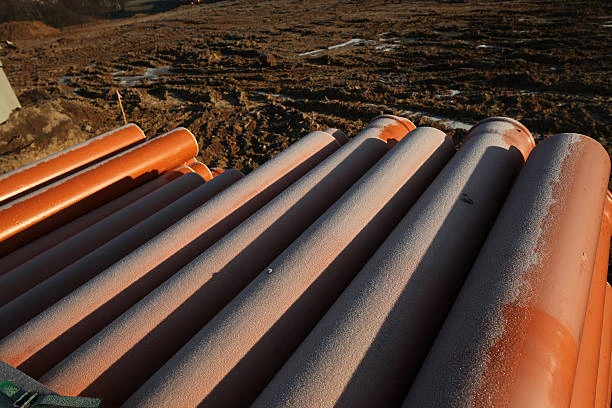Introduction
Water supply systems are the backbone of modern infrastructure, and the materials used in these systems play a critical role. Among the various options available, UPVC pressure pipes and fittings stand out as a reliable and efficient choice. This article delves into their benefits, uses, and why they are a top choice for water supply applications.
What Are UPVC Pressure Pipes and Fittings?
Definition and Composition
UPVC, or Unplasticized Polyvinyl Chloride, is a rigid plastic material known for its durability and chemical resistance. UPVC pressure pipes and fittings are specially designed to handle high-pressure water systems without compromising performance.
Why Choose UPVC for Water Supply?
UPVC’s non-toxic nature makes it safe for transporting drinking water, and its lightweight design simplifies installation and transportation.
Key Benefits of UPVC Pressure Pipes and Fittings
Durability and Longevity
UPVC pipes are resistant to wear and tear, ensuring a long service life even under challenging conditions.
Corrosion Resistance
Unlike metal pipes, UPVC does not corrode when exposed to water or chemicals, making it ideal for water supply systems.
Cost-Effectiveness
The affordability of UPVC pipes, combined with low maintenance costs, offers a budget-friendly solution for various applications.
Environmental Friendliness
UPVC is recyclable, and its production has a lower environmental impact compared to other materials like steel.
Ease of Installation
The lightweight nature of UPVC pipes reduces labor requirements and speeds up installation.
Applications of UPVC Pressure Pipes in Water Supply
Residential Water Supply Systems
UPVC pipes ensure a reliable and safe water supply to households, handling both cold and hot water efficiently.
Agricultural Irrigation
Farmers rely on UPVC pipes for efficient irrigation systems, ensuring optimal water delivery to crops.
Industrial Applications
UPVC pipes are used in industries for transporting water, chemicals, and other fluids due to their chemical resistance.
Comparison With Alternative Materials
UPVC vs. Metal Pipes
Metal pipes are prone to rust and corrosion, whereas UPVC remains unaffected, ensuring consistent water quality.
UPVC vs. HDPE Pipes
While HDPE pipes are flexible, UPVC offers superior pressure resistance and is more affordable.
Standards and Certifications for UPVC Pipes
Always look for pipes that meet international standards like ISO or ASTM to ensure quality and reliability.
Common Issues and Their Solutions
Leak Prevention
Leaks can be avoided by using the right adhesives and ensuring proper jointing techniques.
Pressure Testing and Monitoring
Regular testing helps identify weak points before they become major issues.
Crack Repair Techniques
Minor cracks can be repaired with sealants or epoxy, extending the pipe’s life.
How to Ensure Proper Installation of UPVC Pipes
Choosing the Right Adhesives
Use adhesives specifically designed for UPVC to create strong, leak-proof joints.
Preparing and Cleaning Fittings
Always clean and sand the pipe ends to remove dirt and ensure a secure fit.
Best Practices for Jointing
Apply adhesive evenly and let it cure properly before applying pressure to the system.
Maintenance Tips for UPVC Water Supply Systems
Regular Inspections
Check for leaks, cracks, and signs of wear at least twice a year.

Cleaning and Flushing Pipes
Periodic flushing removes sediment and maintains optimal flow.
Protecting Pipes From UV Exposure
Install UV-resistant pipes or provide shading to prevent degradation.
Future Trends in UPVC Pressure Pipe Technology
Advances in material science are making UPVC pipes even more durable, with improved resistance to temperature variations and environmental stresses.
Conclusion
UPVC pressure pipes and fittings have revolutionized water supply systems with their durability, efficiency, and cost-effectiveness. From residential to industrial applications, they offer a reliable solution for managing water flow. By ensuring proper installation and regular maintenance, you can maximize the lifespan of UPVC systems and enjoy uninterrupted water supply.
FAQs
1. Are UPVC pressure pipes safe for drinking water?
Yes, UPVC pipes are non-toxic and safe for transporting drinking water.
2. How do I prevent leaks in UPVC pipes?
Ensure proper jointing techniques, use the right adhesives, and conduct regular inspections to prevent leaks.
3. Can UPVC pipes handle high-pressure water systems?
Yes, UPVC pressure pipes are designed to withstand high-pressure conditions without compromising performance.
4. What is the lifespan of UPVC pressure pipes?
With proper installation and maintenance, UPVC pipes can last 50 years or more.
5. How do I protect UPVC pipes from sunlight?
Use UV-resistant pipes or provide shading to prevent damage from prolonged sun exposure.


















